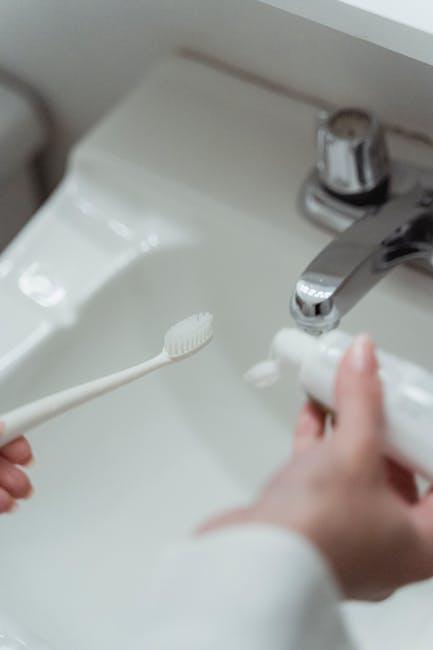
FDA and RFK Jr. Aim to Remove Ingestible Fluoride Products Used to Protect Kids’ Teeth
Fluoride has long been a cornerstone of dental health initiatives in the United States, especially when it comes to protecting children from tooth decay. However, recent developments spotlight a growing controversy around ingestible fluoride products such as tablets, drops, and supplements. A movement involving the Food and Drug Administration (FDA) and environmental attorney Robert F. Kennedy Jr. (RFK Jr.) is advocating for the removal of these products from the market.
Understanding the FDA and RFK Jr.’s Position on Fluoride Supplements
The FDA is currently reviewing the status of fluoride-containing supplements, often prescribed or recommended to children in areas without fluoridated water. RFK Jr., founder of the environmental advocacy group Children’s Health Defense, has been a vocal critic of ingestible fluoride products, citing concerns about potential health risks.
Why is this issue gaining attention now?
- Increased scrutiny on fluoride safety: New scientific studies and reports have questioned the long-term safety of ingestible fluoride, especially in high doses.
- Public debate over water fluoridation: With ongoing debates around the fluoridation of public water supplies, fluoride supplements face renewed skepticism.
- Advocacy by prominent figures: RFK Jr.’s involvement has brought national media focus to the possible risks linked to fluoride ingestion by children.
What Are Ingestible Fluoride Products?
Ingestible fluoride products include fluoride tablets, drops, and lozenges designed to prevent tooth decay in children, particularly in communities lacking fluoridated water. These are usually prescribed by pediatricians or dentists, and are intended to be consumed daily.
Common types of fluoride supplements:
| Product Type | Typical Use | Target Age Group |
|---|---|---|
| Fluoride Tablets | Daily prevention of cavities | 6 months to 16 years |
| Fluoride Drops | Alternative to tablets, easier for infants | Infants to toddlers |
| Fluoride Lozenges | Slow-release fluoride delivery | Older children, teens |
The Controversy Surrounding Ingestible Fluoride
While fluoride is proven to reduce cavities effectively, debates arise over the safety and ethics of ingesting fluoride via supplements. Some of the primary concerns include:
- Overexposure Risks: Excess fluoride may cause dental fluorosis, a condition that results in discoloration of children’s teeth.
- Potential Neurological Effects: Some research suggests excessive fluoride ingestion could impact cognitive development, though evidence remains mixed.
- Variability in Fluoride Sources: Many children receive fluoride through multiple channels (water, toothpaste, supplements), increasing overdose risks.
- Regulatory and Ethical Concerns: Questions about whether fluoride supplements have undergone sufficient safety reviews have intensified calls for stricter oversight or removal.
Perspective from the FDA and Children’s Health Experts
The FDA maintains that fluoride supplements are safe when used as directed and serve as an essential preventive tool in areas where water fluoridation is not feasible. However, the agency is reviewing existing safety data amid calls for reexamination.
Meanwhile, dental organizations emphasize balancing fluoride benefits against risks with appropriate dosing and supervision. Parents are encouraged to consult healthcare providers before starting fluoride supplements.
Benefits and Practical Tips for Parents
Despite controversy, fluoride remains one of the most effective defenses against childhood tooth decay. Here are some practical tips and benefits to consider:
Key Benefits of Fluoride for Children
- Strengthens tooth enamel, making it more resistant to acid attacks from plaque bacteria.
- Reverses early decay in teeth by remineralizing damaged enamel.
- Proven to reduce dental caries by 20-40% in children when used appropriately.
Practical Tips for Safe Fluoride Use
- Consult your pediatrician or dentist: Before using fluoride supplements, get a professional evaluation based on your local water fluoridation status.
- Monitor dosage carefully: Use only the prescribed amount to avoid overexposure and dental fluorosis risk.
- Teach proper oral hygiene: Encourage regular brushing with fluoride toothpaste and routine dental check-ups.
- Be aware of total fluoride sources: Consider all fluoride exposures — water, toothpaste, supplements — to manage safe intake.
Case Study: Impact of Removing Fluoride Supplements in a Local Community
In 2022, a small Midwest community decided to halt the distribution of fluoride tablets due to public pressure and reevaluation of safety data. Over the following year, local dentists observed:
- A slight increase in cavity rates among children under 10 years old.
- Greater emphasis on preventive dental care education by schools and parents.
- Pilot programs promoting water fluoridation resumed discussions to provide safer fluoride sources.
This case highlights the complexity of fluoride regulation and shows how removing supplements without alternative preventive measures may impact child dental health.
First-Hand Perspective: What Parents Should Know
Mary, a mother of two young children, shares her experience:
“When I first heard about the FDA and RFK Jr. pushing to remove fluoride tablets, I was concerned. My kids have been taking them because our water doesn’t have enough fluoride. After speaking with our pediatrician, I learned it’s about balance — making sure kids get enough fluoride to protect their teeth but not too much. We’re now monitoring their fluoride intake carefully and focusing more on brushing and diet.”
Parents should stay informed, ask questions, and follow dental professionals’ advice to ensure children maintain good oral health safely.
Conclusion: Navigating the Fluoride Supplement Debate for Children’s Dental Health
The effort by the FDA and Robert F. Kennedy Jr. to remove ingestible fluoride products underscores a wider debate about public health, safety, and preventive medicine. While concerns about fluoride exposure merit attention, fluoride remains an important tool in combating childhood tooth decay.
Parents and caregivers should stay informed through credible sources, engage healthcare providers in discussions about fluoride use, and weigh the benefits and risks carefully. With the right guidance, children can enjoy strong, healthy teeth without undue risk from fluoride overexposure.
Stay tuned as the FDA continues its review of these products and the ongoing discussions shape future recommendations for children’s dental care.


